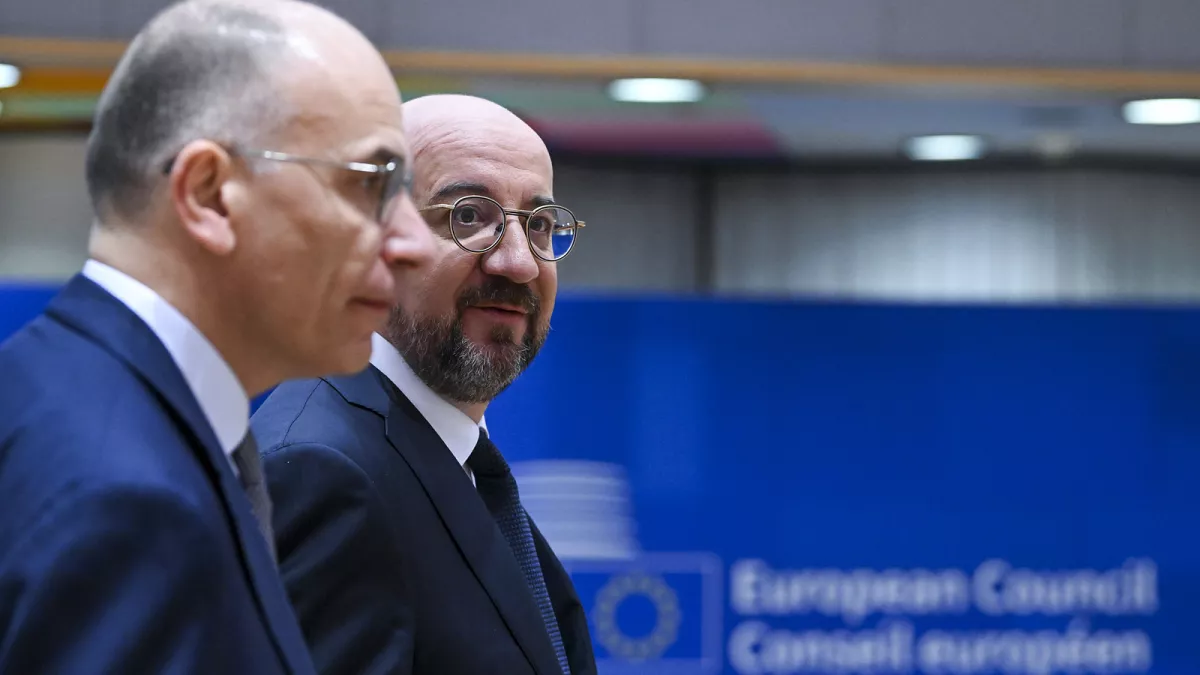EU leaders convened on Thursday to bolster a contentious initiative aimed at integrating the bloc’s financial markets, seeking to align with China and the United States in the global race for clean technology dominance.
The aging single market, instrumental in nurturing European giants across various sectors, is in dire need of modernization after more than three decades. During the Brussels summit, EU leaders emphasized the urgency of expanding the single market to encompass defense, energy, finance, and telecommunications.
Fragmentation within these sectors, characterized by disparate national regulations, undermines the EU’s competitiveness, particularly as global powers like China and the US inject substantial state aid into their key industries. European startups face challenges raising capital compared to their US counterparts, leading to significant outflows of savings from the bloc.
European Commission President Ursula von der Leyen highlighted the detrimental impact of capital market fragmentation on EU development, urging for swift action to address the issue.
However, the prospect of integrating markets across the 27 EU member states sparked intense debate among leaders, reflecting divergent views within the bloc. French President Emmanuel Macron underscored the importance of a savings and investment union to mobilize private financing for EU priorities, signaling ongoing discussions on the matter.
The EU’s ambitious clean energy and digital transitions necessitate substantial investment, estimated at nearly €620 billion annually. Yet, the bloc faces increasing challenges in innovation and economic performance compared to the US and China.
As the EU seeks to define strategic priorities for the European Commission’s next mandate, tensions persist between advocates of greater integration and proponents of decentralized market supervision. Harmonizing taxation and bankruptcy regulations at the EU level remains a contentious issue, with smaller countries resisting centralized oversight.
Amid calls for radical change, EU leaders are grappling with the urgency of addressing economic stagnation, aligning with global trends, and navigating geopolitical crises such as the conflict in Ukraine. With key reports from figures like Mario Draghi on the horizon, the EU faces critical decisions in shaping its economic future.






